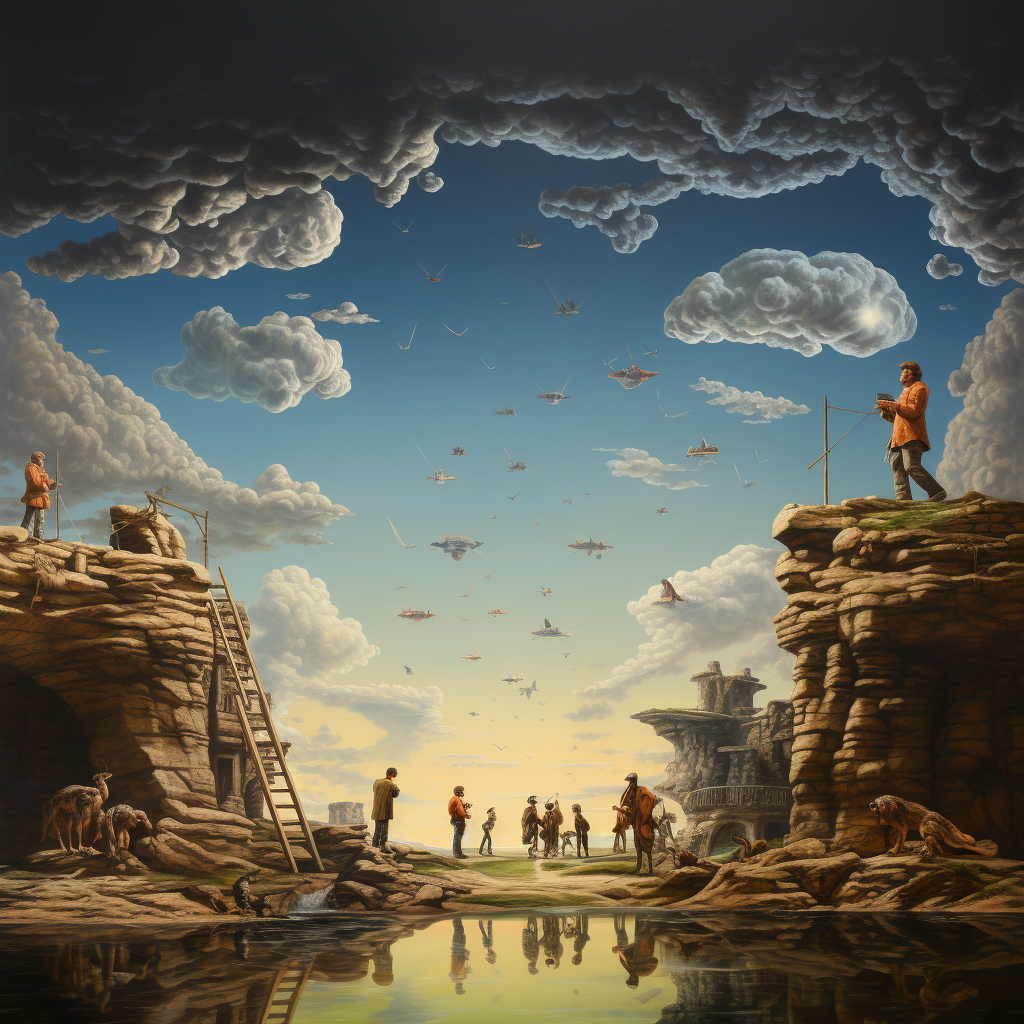Title: Is Religious Belief Hindering the Progress of Genetic Research and Genealogy Studies?
Introduction
Genetic research and genealogy studies have significantly advanced human knowledge about our origins, health, and ancestry. However, some argue that religious beliefs may hinder the progress of these scientific fields. This article explores the extent to which religious beliefs may impede the development of genetic research and genealogy studies, and whether such concerns are valid.
Religious Opposition to Genetic Research
One of the primary concerns is that religious beliefs may lead to opposition against genetic research, particularly when it comes to controversial topics such as cloning, stem cell research, and gene-editing technologies like CRISPR. Some religious groups argue that these practices are unethical because they involve the manipulation of human life and could potentially lead to “playing God.”
For example, the Catholic Church has been vocal in its opposition to embryonic stem cell research, as it involves the destruction of human embryos, which the Church considers to be a form of killing. Similarly, some conservative Christian groups have expressed concerns about gene-editing technologies, arguing that they could lead to the creation of “designer babies” and other ethically questionable practices.
This opposition can create challenges for scientists seeking funding and approval for their research, as well as for policymakers who must navigate the complex ethical issues surrounding genetic research.
Genealogy Studies and Religious Beliefs
Genealogy studies, which involve tracing family history through DNA analysis, can also face resistance from religious groups. For example, some religious individuals may be uncomfortable with the idea that their family history may reveal connections to other ethnic or religious groups, as this could challenge their identity and beliefs.
Additionally, genealogy studies can sometimes conflict with religious narratives about human origins. For example, many religious texts contain stories about the creation of humans and the early history of human civilizations, which may not align with scientific findings based on genetic research. This can lead to resistance from religious individuals who may feel that genealogy studies undermine their faith.
Balancing Scientific Progress and Religious Beliefs

While it is essential to recognize the potential challenges posed by religious beliefs to genetic research and genealogy studies, it is also crucial to appreciate the need to respect diverse viewpoints and foster constructive dialogue. It is important to note that many religious individuals and organizations support scientific research and recognize its value in improving human health and understanding our past.
Moreover, there are instances where religious beliefs and scientific research can complement each other. For example, the Church of Jesus Christ of Latter-day Saints has been a significant supporter of genealogy studies, as the church believes in the importance of connecting with one’s ancestors. Similarly, some religious organizations have supported genetic research related to specific diseases, as they recognize the potential for improving human health and well-being.
To foster a more harmonious relationship between religious beliefs and scientific research, it is essential to promote open dialogue and understanding. Scientists should be sensitive to the religious and cultural concerns of the communities they work with and be prepared to engage in discussions about the ethical implications of their research. At the same time, religious individuals and organizations should be open to learning about the latest scientific findings and considering how they may align with or challenge their beliefs.
While religious beliefs can sometimes create challenges for genetic research and genealogy studies, it is possible to navigate these issues through respectful dialogue and understanding. It is essential to recognize the value of diverse perspectives and to work together to advance human knowledge in a way that respects both scientific inquiry and religious beliefs. By fostering open communication and collaboration, we can ensure that genetic research and genealogy studies continue to make a positive impact on our understanding of ourselves and our world.
Geology vs. Genesis: How Earth’s Ancient History Challenges Religious Beliefs

The debate between science and religion is an ongoing and complex one. For centuries, people have tried to reconcile the seemingly contradictory findings of both realms. Geologists – scientists who study the Earth’s structure, composition, and history – have played an essential role in this debate. Their discoveries have often challenged traditional religious beliefs, particularly those of the Judeo-Christian tradition and the biblical account of Earth’s creation in the Book of Genesis. This article explores the ways in which geology has called into question the credibility of these religious teachings and what this means for those who hold on to their faith in the face of scientific evidence.
The Geological Timescale
One of the most significant contributions of geology to the understanding of Earth’s history is the development of the geological timescale. This is a system of chronological dating that relates geological strata (layers of rock) to time. It provides a comprehensive timeline of Earth’s history, divided into eons, eras, periods, epochs, and ages.
The geological timescale is based on the study of rock formations and the fossils they contain. By analyzing the composition and relative positions of these rocks, geologists can determine their age and construct a chronological sequence of events. This method of dating, known as the principle of superposition, allows scientists to establish that the Earth is approximately 4.6 billion years old.
The Age of the Earth
The age of the Earth, as determined by geologists, directly contradicts the biblical account of creation in the Book of Genesis. According to the Bible, the Earth was created in six days, and the genealogies listed in the Old Testament suggest that this event occurred around 6,000 years ago.
The vast difference in age between the scientific and religious accounts of Earth’s creation has led many to question the accuracy of the Bible. This discrepancy has caused some to reinterpret the biblical text, suggesting that the six days of creation represent symbolic periods rather than literal 24-hour days. Others, however, maintain a young Earth creationist view and reject the scientific evidence in favor of their religious beliefs.
Fossil Evidence and Evolution
The study of fossils has also contributed to the conflict between geology and religious beliefs. The fossil record provides evidence of a diverse array of extinct organisms and clearly demonstrates that life on Earth has evolved over time. This evidence directly challenges the biblical account of creation, which asserts that all living organisms were created as they are today.
The theory of evolution, first proposed by Charles Darwin in the 19th century, further undermines the credibility of the biblical account of creation. Evolution posits that all living organisms share a common ancestry and have evolved through a process of natural selection. This directly contradicts the belief that each species was created independently and has remained unchanged since its creation.
Conclusion

The study of geology has provided substantial evidence that challenges the traditional religious beliefs found in the Book of Genesis and other religious texts. The vast differences in the age of the Earth, the fossil record, and the lack of evidence for a global flood all contribute to a growing rift between science and religion. While some individuals may choose to reinterpret their religious beliefs in light of scientific evidence, others may continue to hold on to their faith despite the contradictions. Ultimately, the debate between geology and religion is one that will likely continue for generations to come, as individuals grapple with the complex relationship between faith and reason.
Other Websites by Eye of Unity:
https://eyeofunity.com
https://meteyeverse.com
https://000arcade.com
https://00arcade.com
https://0arcade.com
https://wealth-financing.com
https://techgenstore.com
https://systementcorp.com
https://affiliatesbonus.com
https://albertbrain.com
https://lastdaystore.com
https://controlsecret.com
https://realufopics.com
https://officialmikemc.com
https://keyselfdefense.com
https://ashleymega.com

